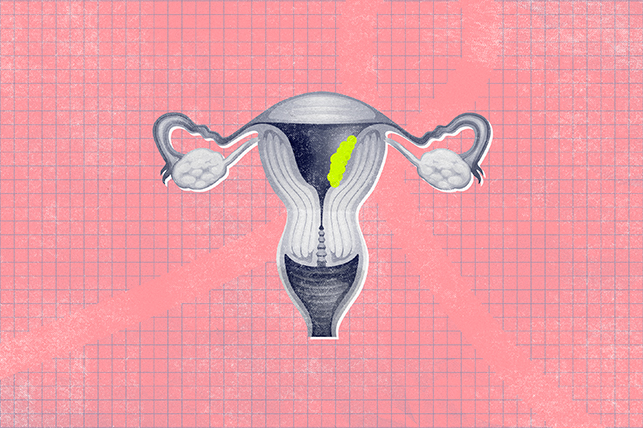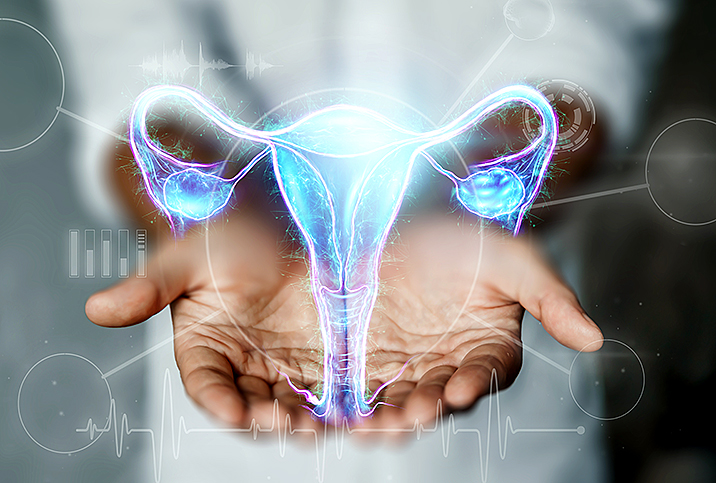Signs, Symptoms and Risk Factors That Can Lead to Endometrial Cancer

Endometrial cancer is the most common female reproductive cancer among American women. This cancer begins in the uterus but can spread to other body parts. Fortunately, endometrial cancer is often detected early, increasing the odds of a full recovery.
An overview of endometrial cancer
Endometrial cancer is cancer of the uterine lining. The uterus, sometimes called the womb, is the pear-shaped, muscular organ where a fetus develops. The internal lining of the uterus is called the endometrium.
A person is diagnosed with endometrial cancer when carcinoma (a type of cancer) develops in that innermost lining.
Uterine cancer is an umbrella term for any cancer that begins in the uterus. Endometrial cancer is a type of uterine cancer.
The other type of uterine cancer, uterine sarcoma, develops in the uterus's muscular middle layer rather than in its inner lining.
How common is endometrial cancer?
Endometrial carcinoma is the most common gynecological cancer in developed countries such as the United States. The lifetime risk for most American women is about 3 percent.
The American Cancer Society estimates there will be about 66,200 new cases of cancer of the uterine body in 2023. About 13,030 women will die from the disease this year.
Risk factors for endometrial cancer
The most common type of endometrial cancer is caused by exposure to excess estrogen, according to Evelyn Fleming, M.D., a gynecologic oncologist at Dartmouth Hitchcock Medical Center in Lebanon, New Hampshire.
Many factors can impact estrogen and increase your potential risk of developing endometrial cancer.
Conditions marked by hormone fluctuations
Fluctuations in hormones affect your endometrium and ovulation patterns. Conditions linked to hormone imbalance include polycystic ovary syndrome (PCOS) and certain ovarian tumors.
Postmenopausal hormone replacement therapy (HRT)
"Excess estrogen can also come when it is ingested after menopause in the form of hormone replacement therapy," Fleming said.
The longer estrogen-only HRT is used, the greater the risk for endometrial cancer. HRT is typically prescribed for people who don't have the usual risk factors.
Obesity
Too much extra body weight may change your body's hormonal balancing act.
"Women who are overweight or obese have excess estrogen being made in their bodies, and this can cause endometrial cancer," Fleming explained. "In fact, endometrial cancer is the most common obesity-associated cancer in women."
More menstrual cycles
People who get their periods before age 12 or go through menopause later than most (age 55 and older) have an increased risk of endometrial cancer.
Age
Your risk of endometrial cancer increases with age, particularly between the ages of 50 and 70. More than half of women with endometrial cancer are diagnosed after age 55, according to the Society of Gynecologic Oncology.
Family history
Sometimes a heightened risk of the disease runs in families. Both Lynch and Cowden hereditary syndromes are linked to endometrial cancer, according to Memorial Sloan Kettering Cancer Center.
Complex atypical hyperplasia (CAH)
Hyperplasia means enlargement, and complex atypical hyperplasia (CAH) is an abnormal overgrowth of endometrial tissue. Up to 29 percent of people with untreated CAH are at risk of developing endometrial cancer.
Outlook
As is the case with most cancers, early detection is vital to the prognosis. Fleming said a patient's life expectancy could remain unaffected if this cancer is caught and removed quickly.
According to Cleveland Clinic, there is an 81 percent five-year survival rate for endometrial cancer. The survival rate decreases to 17 percent if endometrial cancer has spread outside the uterus.
If you discover changes in your reproductive system, schedule a visit with your health practitioner. The sooner this cancer is discovered, the better your outlook.
When to see a doctor
The most common symptom of endometrial cancer is abnormal vaginal bleeding, including unexplained changes in menstrual patterns or bleeding, Fleming said.
It can be tempting to ignore or postpone talking to your doctor about spotting, especially if it's painless. But don't.
"If you have these symptoms, please don't delay in getting them evaluated," Fleming said.
The bottom line
Endometrial cancer is a common cancer affecting people assigned female at birth. Call your doctor if you experience any changes in your body, such as unusual spotting or bleeding between periods. Early diagnosis is essential.
If you don't have a doctor, Giddy Telehealth takes the stress out of finding a healthcare professional. The easy-to-use online portal provides access to hundreds of medical professionals. Many offer same-day appointments.


















